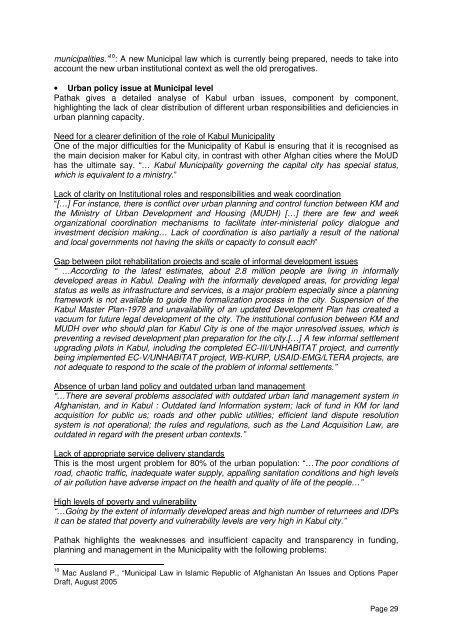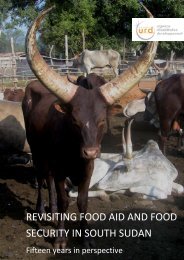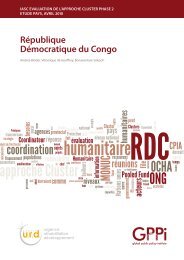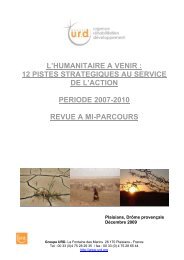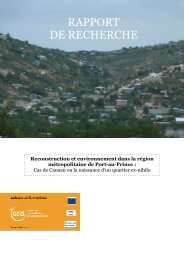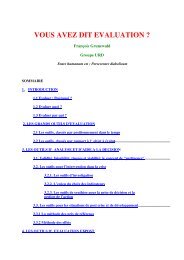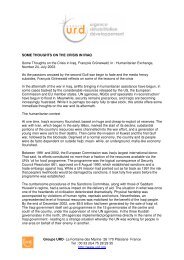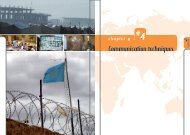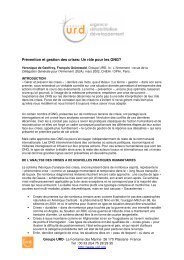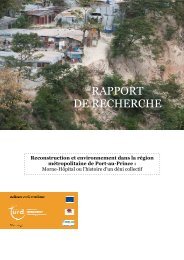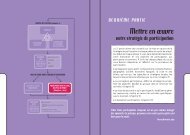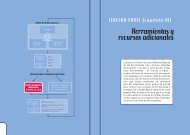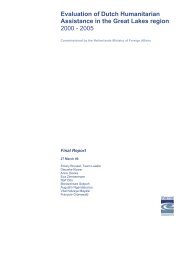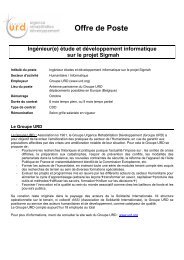Kabul Urban Survey - Groupe URD
Kabul Urban Survey - Groupe URD
Kabul Urban Survey - Groupe URD
You also want an ePaper? Increase the reach of your titles
YUMPU automatically turns print PDFs into web optimized ePapers that Google loves.
municipalities.” 10 : A new Municipal law which is currently being prepared, needs to take into<br />
account the new urban institutional context as well the old prerogatives.<br />
• <strong>Urban</strong> policy issue at Municipal level<br />
Pathak gives a detailed analyse of <strong>Kabul</strong> urban issues, component by component,<br />
highlighting the lack of clear distribution of different urban responsibilities and deficiencies in<br />
urban planning capacity.<br />
Need for a clearer definition of the role of <strong>Kabul</strong> Municipality<br />
One of the major difficulties for the Municipality of <strong>Kabul</strong> is ensuring that it is recognised as<br />
the main decision maker for <strong>Kabul</strong> city, in contrast with other Afghan cities where the MoUD<br />
has the ultimate say. “… <strong>Kabul</strong> Municipality governing the capital city has special status,<br />
which is equivalent to a ministry.”<br />
Lack of clarity on Institutional roles and responsibilities and weak coordination<br />
“[…] For instance, there is conflict over urban planning and control function between KM and<br />
the Ministry of <strong>Urban</strong> Development and Housing (MUDH) […] there are few and week<br />
organizational coordination mechanisms to facilitate inter-ministerial policy dialogue and<br />
investment decision making… Lack of coordination is also partially a result of the national<br />
and local governments not having the skills or capacity to consult each”<br />
Gap between pilot rehabilitation projects and scale of informal development issues<br />
“ …According to the latest estimates, about 2.8 million people are living in informally<br />
developed areas in <strong>Kabul</strong>. Dealing with the informally developed areas, for providing legal<br />
status as wells as infrastructure and services, is a major problem especially since a planning<br />
framework is not available to guide the formalization process in the city. Suspension of the<br />
<strong>Kabul</strong> Master Plan-1978 and unavailability of an updated Development Plan has created a<br />
vacuum for future legal development of the city. The institutional confusion between KM and<br />
MUDH over who should plan for <strong>Kabul</strong> City is one of the major unresolved issues, which is<br />
preventing a revised development plan preparation for the city.[…] A few informal settlement<br />
upgrading pilots in <strong>Kabul</strong>, including the completed EC-III/UNHABITAT project, and currently<br />
being implemented EC-V/UNHABITAT project, WB-KURP, USAID-EMG/LTERA projects, are<br />
not adequate to respond to the scale of the problem of informal settlements.”<br />
Absence of urban land policy and outdated urban land management<br />
“…There are several problems associated with outdated urban land management system in<br />
Afghanistan, and in <strong>Kabul</strong> : Outdated land Information system; lack of fund in KM for land<br />
acquisition for public us; roads and other public utilities; efficient land dispute resolution<br />
system is not operational; the rules and regulations, such as the Land Acquisition Law, are<br />
outdated in regard with the present urban contexts.”<br />
Lack of appropriate service delivery standards<br />
This is the most urgent problem for 80% of the urban population: “…The poor conditions of<br />
road, chaotic traffic, inadequate water supply, appalling sanitation conditions and high levels<br />
of air pollution have adverse impact on the health and quality of life of the people…”<br />
High levels of poverty and vulnerability<br />
“…Going by the extent of informally developed areas and high number of returnees and IDPs<br />
it can be stated that poverty and vulnerability levels are very high in <strong>Kabul</strong> city.”<br />
Pathak highlights the weaknesses and insufficient capacity and transparency in funding,<br />
planning and management in the Municipality with the following problems:<br />
10 Mac Ausland P., “Municipal Law in Islamic Republic of Afghanistan An Issues and Options Paper<br />
Draft, August 2005<br />
Page 29


